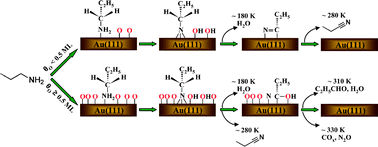Nano-tattoos for bespoke surface design
Research reports a new strategy for using atomic force microscopy (AFM) coupled with homogeneous catalysis to carry out chemical reactions that have been ‘tattooed’ onto a material surface.
Researchers in France immobilised a homogeneous transition metal catalyst onto an AFM probe and used it to perform alkene epoxidations in precisely-defined areas on a self-assembled monolayer (SAM). Epoxides are a commonly used synthetic handle in organic chemistry because of the possibility to generate highly regio- and stereoselective reaction intermediates.
The scientists carried out epoxidation of an alkene-terminated SAM on silicon using hydrogen peroxide as an oxidant and a catalytic silicon AFM tip charged with manganese complexes. The resulting array of surface bound epoxides provides ideal anchoring sites for covalent grafting of larger substrates, such as proteins, onto the surface in a predefined pattern.
Most read news
Other news from the department science

Get the chemical industry in your inbox
By submitting this form you agree that LUMITOS AG will send you the newsletter(s) selected above by email. Your data will not be passed on to third parties. Your data will be stored and processed in accordance with our data protection regulations. LUMITOS may contact you by email for the purpose of advertising or market and opinion surveys. You can revoke your consent at any time without giving reasons to LUMITOS AG, Ernst-Augustin-Str. 2, 12489 Berlin, Germany or by e-mail at revoke@lumitos.com with effect for the future. In addition, each email contains a link to unsubscribe from the corresponding newsletter.



















































